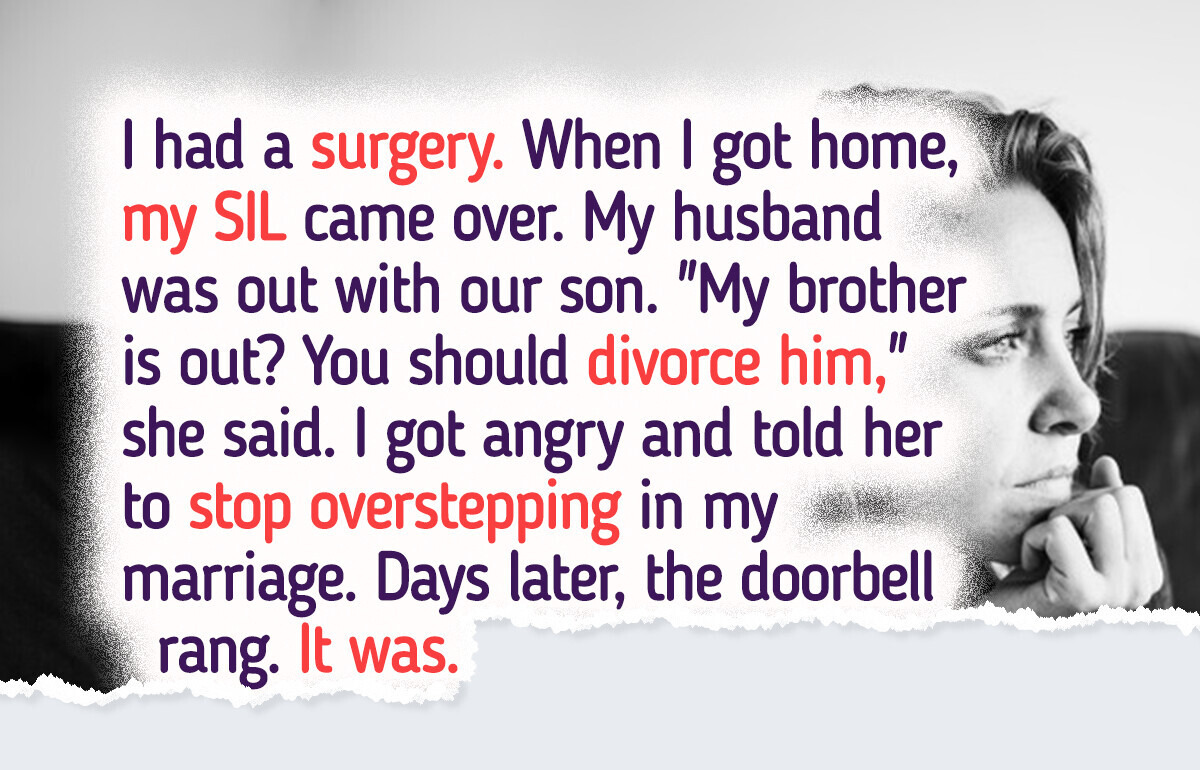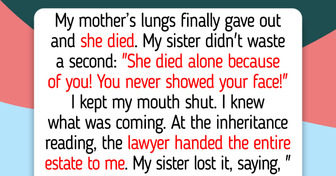11 Real Concert Stories That Prove Anything Can Happen at a Show


Relationships with relatives can sometimes be complicated especially when they decide to get involved in family dynamics. One of our readers asked for advice when her sister-in-law took unnecessary actions about her family. Let’s look at the situation together.
Hello Bright Side,
I had a surgery. When I got home, my SIL came over. My husband was out with our son. “My brother is out? You should divorce him,” she said. I got angry and told her to stop overstepping in my marriage. Days later, the doorbell rang. It was...
... a social worker! My sister-in-law had reported my husband—her own brother!—as abusive. She twisted the whole surgery situation to make it seem like he left me to deal with everything alone and even made up all sorts of other things to make it seem like my son and I were at risk. I realized she had taken things from her own past with her ex and exaggerated them.
It was a tough time. We had to go through a long and exhausting process. After talking to us, our neighbors, and several other people, the social worker understood that there was nothing wrong with our family.
My sister-in-law never apologized—she just said she was “helping” us. My husband is devastated and angry. I get why he doesn’t want her around our family after everything that happened. But I still wish I could do something —they used to be so close! I can see that her past trauma is what made her act this way. I wish I could be there for her so she could get help. At the same time, my husband and my son are my priorities. What can I do?
Sincerely,
Mandy
Dear Mandy,
Thank you for sharing your story with us. We understand this can be saddening for both you and your husband. We have some advice for you.
Your husband has every right to distance himself after what happened. His sister’s actions had serious consequences, and he may need time—maybe even forever—to feel safe around her again. While you can have empathy for her, prioritizing your husband and son means supporting his decision to keep her at a distance.
If you still want to help your sister-in-law, do so in a way that doesn’t put your family at risk. That might mean keeping limited, controlled contact (like checking in via text but not allowing visits). Make it clear that you won’t tolerate overstepping and that she needs to work on her own healing.
Your SIL’s actions seem driven by unresolved trauma. If you want to help, you could gently suggest therapy or resources that might support her healing. However, it’s not your job to fix her—she has to want that for herself.
Every family can have small or, as in this story, big disagreements. The solution to these difficulties lies in how we respond to them. Read stories about what other families have experienced.











